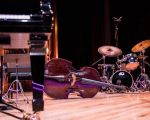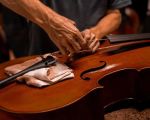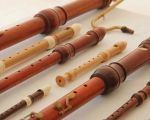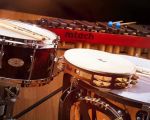- 1-Understanding-Intermediate-Piano-Needs
- 2-Key-Features-to-Look-for-in-Intermediate-Pianos
- 3-Top-Piano-Models-for-Intermediate-Musicians
- 4-Real-Experiences-from-Intermediate-Piano-Players
- 5-Choosing-the-Right-Piano-for-Your-Journey
- 6-Resources-to-Find-the-Best-Pianos
Understanding Intermediate Piano Needs
For intermediate musicians, the best pianos balance technical capability with expressive potential. At this stage, players require instruments that respond well to dynamic touch and offer tonal richness to support their growing skills. Unlike beginner models, intermediate pianos often include enhanced hammer action and greater sound projection, essential for mastering complex pieces.
Recognizing these needs helps pianists select pianos that encourage progress without overwhelming their current level.
Key Features to Look for in Intermediate Pianos
When exploring pianos for intermediate players, key features include weighted keys with graded hammer action, a responsive touch, and quality soundboards. The instrument’s durability and tuning stability are also critical for consistent practice and performance.
Digital pianos designed for intermediates often include features such as adjustable touch sensitivity and a variety of sound samples, giving players versatile tools for expression and experimentation.
Top Piano Models for Intermediate Musicians
Popular models favored by intermediate musicians include the Yamaha P-125 digital piano, known for its realistic touch and portability, and the Kawai ES110, which offers rich tone and responsive action. For acoustic enthusiasts, the Yamaha U1 upright piano delivers classic sound quality and durability.
These pianos have received acclaim for helping musicians bridge the gap between beginner basics and advanced artistry, making them excellent choices for ongoing development.
Real Experiences from Intermediate Piano Players
Sarah, an intermediate player, shared her journey: “Upgrading to a Yamaha P-125 transformed my practice. The feel of the keys and sound quality inspired me to tackle more challenging pieces. It felt like the piano grew with me.”
Such stories illustrate how selecting the right piano can motivate musicians and deepen their engagement with music.
Choosing the Right Piano for Your Journey
Choosing the best piano for intermediate musicians involves considering personal preferences, budget, and space. Acoustic pianos offer authentic experience but require more maintenance, while digital pianos provide flexibility and additional features that support learning.
Trying different models and consulting experts can guide you to an instrument that aligns with your musical goals and lifestyle.
Resources to Find the Best Pianos
To explore more options and find the perfect piano, visit Beat Trigger. This platform offers detailed reviews, expert advice, and access to a wide range of pianos suited for intermediate musicians, helping you make an informed and confident purchase.








